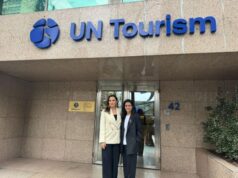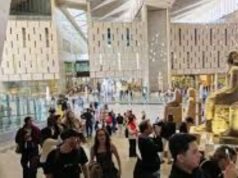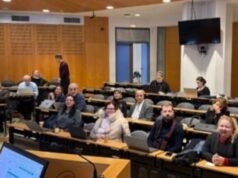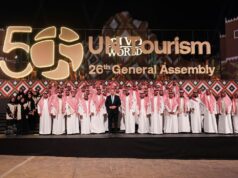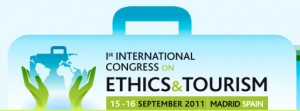 Ten years since the adoption of the Global Code of Ethics for Tourism by the United Nations General Assembly, the first International Congress on Ethics and Tourism has opened with calls to intensify efforts to place ethics at the core of tourism development (Madrid, Spain, 15-16, September).
Ten years since the adoption of the Global Code of Ethics for Tourism by the United Nations General Assembly, the first International Congress on Ethics and Tourism has opened with calls to intensify efforts to place ethics at the core of tourism development (Madrid, Spain, 15-16, September).
“In today’s global economic climate, it is more important than ever for all sectors to follow ethical principles,” said Secretary-General of Tourism and Domestic Trade of Spain, Joan Mesquida opening the Congress. “Today is an opportunity to assess the implementation of the ethical framework for the tourism sector, the Global Code of Ethics for Tourism”.
“We have made every effort to ensure that those countries in which tourism development is just beginning, and with which we sign cooperation agreements, govern according to these principles and demand the same of the multinationals that invest in their countries,” he said.
In his keynote address, the UN High Representative for the Alliance of Civilizations, Jorge Sampaio, spoke of the need to move towards a new global, sustainable society underpinned by strong ethical foundations. “Sustainability requires a common vision of basic values in our increasingly interdependent world,” he said. “Because it involves the movement of millions of people, tourism can play a pivotal role in creating a shared sense of responsibility”.
UNWTO Secretary-General, Taleb Rifai, pointed to the extraordinary growth of the tourism sector over the past decades and the opportunities for jobs, economic development and social empowerment this has brought to millions of people; but alerted that tourism growth also brings challenges that can’t be ignored. “A tourism sector without an ethical conscience can harm our planet. We need to place ethics, responsibility and sustainability at the core of all our actions and ensure the adoption of and adherence to the principles of the Global Code of Ethics for Tourism,” he said.
On the occasion of the Congress, UNWTO and the United Nations Alliance of Civilizations (UNAOC) signed a Memorandum of Understanding to strengthen relations and formalize UNWTO’s support for the UNAOC mandate to “improve understanding and cooperative relations among nations and peoples across cultures and religions”.
Mr. Rifai highlighted the theme of this year’s World Tourism Day, Tourism – Linking Cultures, as a clear example of the potential of tourism to contribute to the aims of the UNAOC. “With nearly one billion tourists crossing international borders, tourism is one of the best way for people to experience, interact with and learn from new cultures. This cultural exchange spurs dialogue among nations and peoples, fostering mutual understanding, respect and ultimately, peace,” he noted.
“With the aim of advancing the principles of the Global Code of Ethics, the main objective of the Italian Chairmanship of the UNWTO Executive Council has been to promote the development of a practical guide and an international legal instrument for the protection of travellers/consumers, especially in cases of emergency. To this end, an ad hoc working group is assessing the rules in force in the 154 UNWTO Member States and Italy expects the first results to be available at the next UNWTO General Assembly,” said Michela Brambilla, Minister of Tourism of Italy, host country of the World Committee on Tourism Ethics.
Organized by UNWTO and the Spanish General Secretariat of Tourism and Domestic Trade, the Congress has brought together over 450 tourism officials, business leaders, international organizations and experts in the field of ethics and tourism to debate how to guarantee a truly responsible and sustainable tourism sector. The two-day meeting will address questions of gender equality, tourism’s role in poverty reduction, sustainable tourism practices in both the public and private sector, and codes of ethical conduct.


